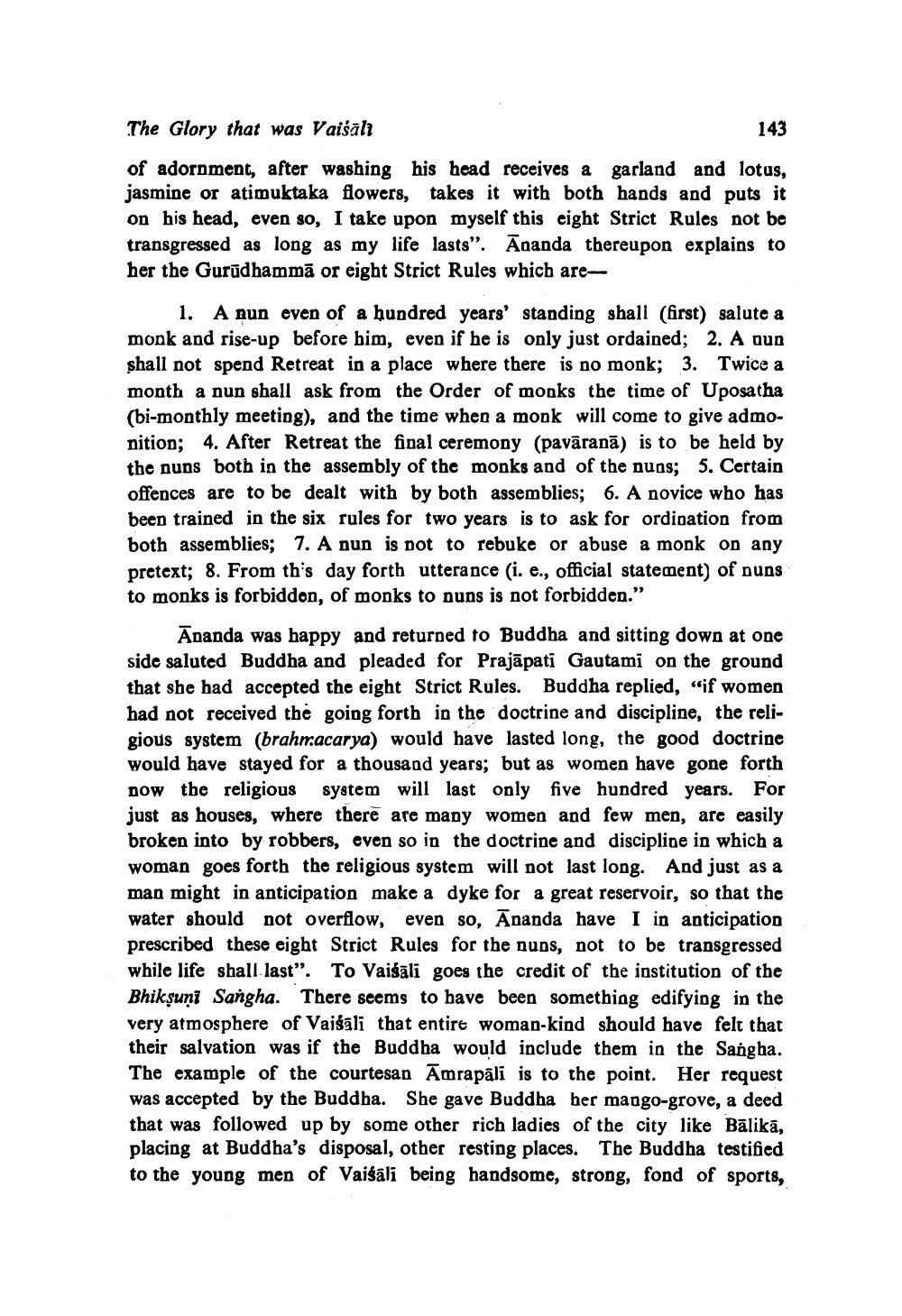________________ The Glory that was Vaisali 143 of adornment, after washing his head receives a garland and lotus, jasmine or atimuktaka flowers, takes it with both hands and puts it on his head, even so, I take upon myself this eight Strict Rules not be transgressed as long as my life lasts". Ananda thereupon explains to her the Gurudhamma or eight Strict Rules which are 1. A run even of a hundred years' standing shall (first) salute a monk and rise-up before him, even if he is only just ordained; 2. A nun shall not spend Retreat in a place where there is no monk; 3. Twice a month a nun shall ask from the Order of monks the time of Uposatha (bi-monthly meeting), and the time when a monk will come to give admonition; 4. After Retreat the final ceremony (pavarana) is to be held by the nuns both in the assembly of the monks and of the nuos; 5. Certain offences are to be dealt with by both assemblies; 6. A novice who has been trained in the six rules for two years is to ask for ordination from both assemblies; 7. A nun is not to rebuke or abuse a monk on any pretext; 8. From this day forth utterance (i. e., official statement of nuns to monks is forbidden, of monks to nuns is not forbidden." Ananda was happy and returned to Buddha and sitting down at one side saluted Buddha and pleaded for Prajapati Gautami on the ground that she had accepted the eight Strict Rules. Buddha replied, "if women had not received the going forth in the doctrine and discipline, the religious system (brahmacarya) would have lasted long, the good doctrine would have stayed for a thousand years; but as women have gone forth now the religious system will last only five hundred years. For just as houses, where there are many women and few men, are easily broken into by robbers, even so in the doctrine and discipline in which a woman goes forth the religious system will not last long. And just as a man might in anticipation make a dyke for a great reservoir, so that the water should not overflow, even so, Ananda have I in anticipation prescribed these eight Strict Rules for the nuns, not to be transgressed while life shall last". To Vaisali goes the credit of the institution of the Bhiksuni Sangha. There seems to have been something edifying in the very atmosphere of Vaisali that entire woman-kind should have felt that their salvation was if the Buddha would include them in the Sangha. The example of the courtesan Amrapali is to the point. Her request was accepted by the Buddha. She gave Buddha her mango-grove, a deed that was followed up by some other rich ladies of the city like Balika, placing at Buddha's disposal, other resting places. The Buddha testified to the young men of Vaisali being handsome, strong, fond of sports,




